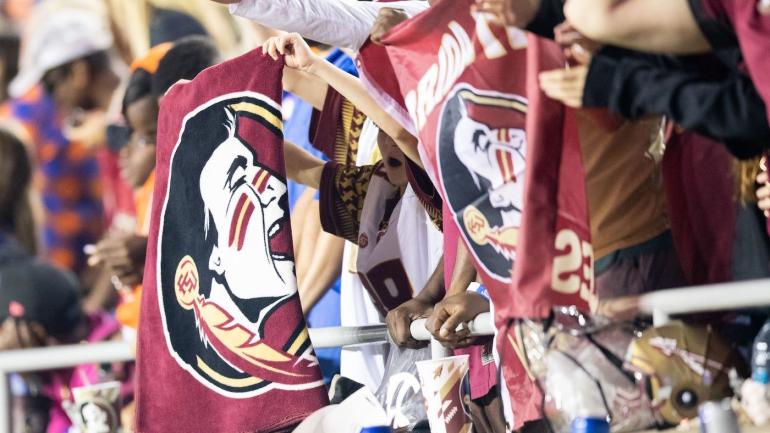
The Florida State athletic department is considering private equity investment as a means of raising funds as the program tries to close the revenue gap between itself and Big Ten and SEC schools, according to Sportico. The school has worked with JPMorgan Chase and private equity firm Sixth Street in hopes of raising further capital.
The investment structure would be similar to deals involving pro sports teams in the past. Florida State would create a holding company for its media rights; a private equity firm would invest into that entity and receive money in return from future sponsorship and television rights payouts.
In such a scenario, it's unclear what specific FSU entity would help coordinate the first-ever foray into private equity by a college athletics program. Beyond the public university, the athletic department is set up as a separate nonprofit. A booster organization also has intimate involvement with the school. It could be a complicated setup to both protect nonprofit status and many university assets as possible.
CBS Sports' Dennis Dodd this week took a timely look at how third-party influence may soon shake foundation of college football impacting both conferences and individual programs themselves.
Friday's report comes after Florida State's Board of Trustees held a public meeting and publicly excoriated their existing contract with the ACC. That deal, which was signed in 2016 and runs through 2036, pays approximately half as much as SEC and Big Ten television contracts. Multiple Florida State trustees stated publicly that the school wanted out of the ACC.
The ACC changed its revenue model in May to one that rewards performance and could add $10 million to the payout for high-achieving schools. However, that bigger payout has not shut down attempts by Florida State to weigh its options.
The base buyout for an ACC program to leave the league early is $120 million, but buying out the grant of rights will be another large expense that could approach $500 million, according to some estimates. There are still 13 years remaining on the ACC's 20-year exclusive contract with ESPN.
If the private equity investment goes through, Florida State could raise the capital to negotiate a break from the grant of rights. It could also use the money to close the yearly gap with the SEC and Big Ten to set itself up as a national championship contender while remaining in the ACC.
The Pac-12 previously connected with private equity fund The Raine Group to potentially invest in its media rights in 2019. However, an investment ultimately did not come through. While private equity has invested in different professional sports leagues and team ownership groups, there is no precedent for a private equity group investing in a college athletics department, which does not have a formal ownership structure as a nonprofit educational organization.
















